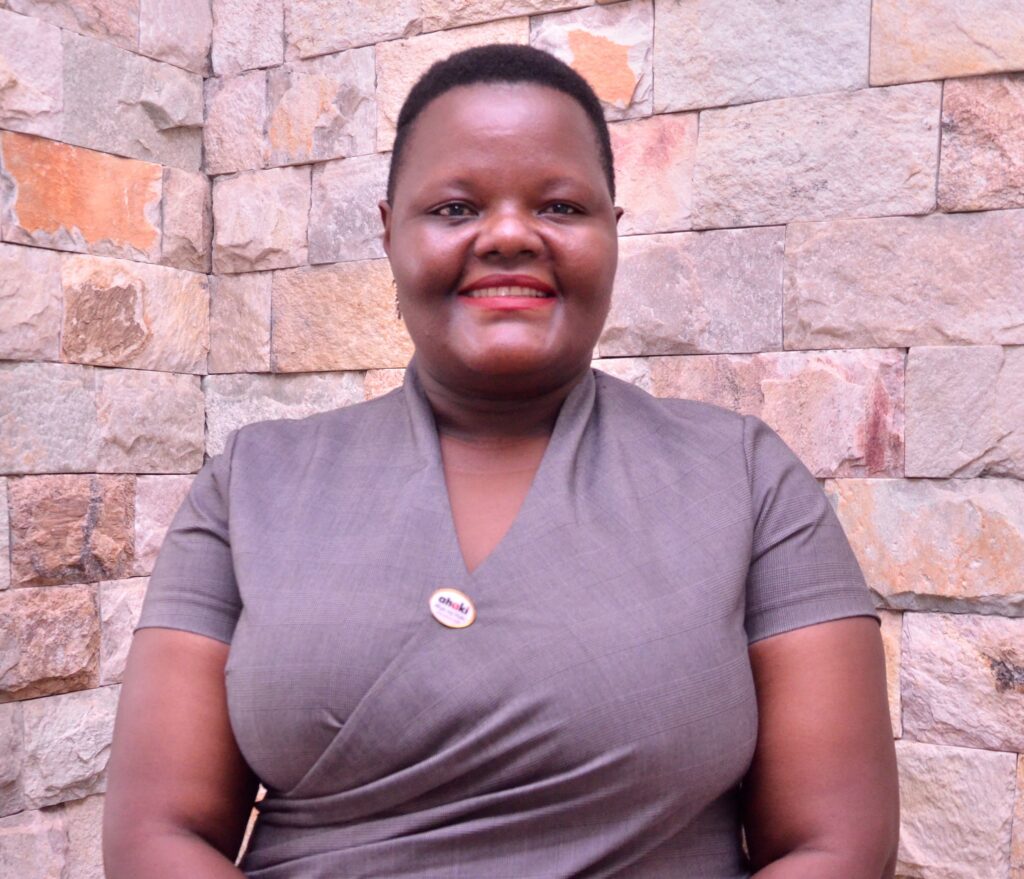Despite government’s initiatives and programmes to facilitate the utilisation of SGBV services in Uganda, there is still evidence of barriers and several gender disparities which persist in access to sexual and reproductive health services for survivors of sexual gender-based violence.
By Judith Nakalembe
As we mark the 16 days of activism campaign against Gender Based Violence (GBV), we appreciate the Government of Uganda through the Ministry of Gender, Labour and Social Development, and Ministry of Health for the tremendous effort in policy and programme development and implementation with regard to prevention and response to GBV. This is reflected in the enactment of several legislation such as the Domestic Violence Act 2010, The Prohibition of Female Genital Mutilation Act, 2010, Trafficking in Persons Act 2010. This is in addition to policies such as the Uganda Gender Policy 2007, The National Policy on Elimination of Gender Based Violence in Uganda 2016, the Guidelines for Establishment and Management of Gender Based Violence Shelters in Uganda. The recent directive to prohibit health service providers from soliciting funds from survivors of sexual and gender based violence is also of note. These policies, directives, laws and guidelines provide the legal context within which programmes on prevention and response to GBV occur, foster zero tolerance environment, provide comprehensive response and care and support services to survivors as well as eliminate impunity by the abusers. Article 33 of the 1995 constitution of the Republic of Uganda government has an obligation to protect women and girls from any form of violence, which is why these 16 days are important, as they give us an opportunity to assess how we are doing on that front, and in achieving the sustainable development goals (SDGs), particularly SDG 3.
As civil society, we complement government efforts in prevention and response to SGBV. Despite government initiatives and programmes to facilitate the utilisation of SGBV services in Uganda, there is still evidence of barriers and several gender disparities which persist in access to sexual and reproductive health services for survivors of sexual gender-based violence.

Ms Nakalembe is a Programme Officer in the Community Empowerment Programme, CEHURD.
The 2021 Annual Police Crime Report and an assessment by Center for Health, Human Rights and Development (CEHURD) of cases reported before and during the pandemic in various districts,indicate an increase in sexual offences reported. When faced with SGBV, survivors are advised to report to public health facilities urgently as a referral mechanism for medical examination and management and to fill in Police Form 3 appropriately. However, in the course of our interventions we have observed that some health facilities are not survivor centred, and lack appropriate good quality care for survivors of sexual violence. Survivors are also unable to access services 24 hours a day, as most health service providers work half day and are hardly available over the weekends. We have had to contend with unethical health service providers who solicit funds at a fee of Shs50,000 from survivors for medical examination and the form. A majority of survivors cannot afford it and end up only reporting the cases to police without seeking medical attention yet sexual abuse can lead to numerous health adverse health conditions. These include disability due to injury, HIV/Aids, sexually transmitted infections (STIs), unintended pregnancy, unsafe abortions, mental health outcomes, including posttraumatic stress disorder, anxiety and depression, and an increased risk of ideated or attempted suicide, among others.
During the Generation Equality Forum, an international initiative in favour of gender equality, held in Paris on June 30 to July 2, 2021 the government of Uganda committed to eliminating GBV by scaling up comprehensive, accessible, and quality services for survivors. The commitments included;
- Supporting the collection of forensic evidence on GBV, violence against children (VAC), especially capital offences reported through the media, GBV special courts and shelters, Sauti 116, Police, Health Facilities, NGOs and LCs to inform court processes.
- Effective implementation of GBV/VAC legislation with adequate resourcing and budgets.
- Provision of timely medical services including Emergency Contraceptives (EC), Post Exposure Prophylaxis (PEP) and STI treatment etc. to GBV/VAC survivors for increased access to timely, comprehensive and quality medical services to GBV/VAC survivors.
- Development of a national guideline for health service providers on identification and Management of victims/survivors of GBV, including roles, responsibilities and referral pathways and socialization to health providers at all levels and related stakeholders on the National guideline
- Training health facility staff to handle GBV/VAC cases including collecting of forensic evidence for Improvement in the quality of forensic evidence and service delivery to GBV/VAC survivors.
- Establishment of additional 20 shelters across the county to handle issues GBV/VAC survivors.
- Provide training and support to all service providers within the Criminal Justice systems dealing with GBV/VAC matters (including police, prosecutors, magistrates, intermediaries, court preparation officers, health care providers and policy makers) to strengthen victim-centric survivor focused services and prevent any forms of secondary victimization.
- Programs for counseling and psychosocial support to young girls that got pregnant during COVID 19 lockdown established.
- Ensuring that victims and survivors’ rights are fully protected through formal Justice systems and perpetrators are brought to justice by enhancing the capacities of the policing and prosecution institutions to ensure GBV survivors are able to access quality justice services; accessible, responsive and gender inclusive to ensure GBV survivors are able to access efficient and sensitive criminal justice that is quick and inclusive.
- Mechanisms put in place for survivors/victims who seek legal redress as well as whistleblowers who provide information in-order to protect them from reprisals and further harm.
- Put in place interventions to respond to specific barriers that victims may face in accessing information and services, addressing the unequal and inequitable spread of victim services.
As we commemorate these 16 days of activism (from November 25th to December 10th), we call upon the Government of Uganda to fulfill these commitments, and end gender-based violence.
A version of this article was published in the Daily Monitor on 1st December 2021.

